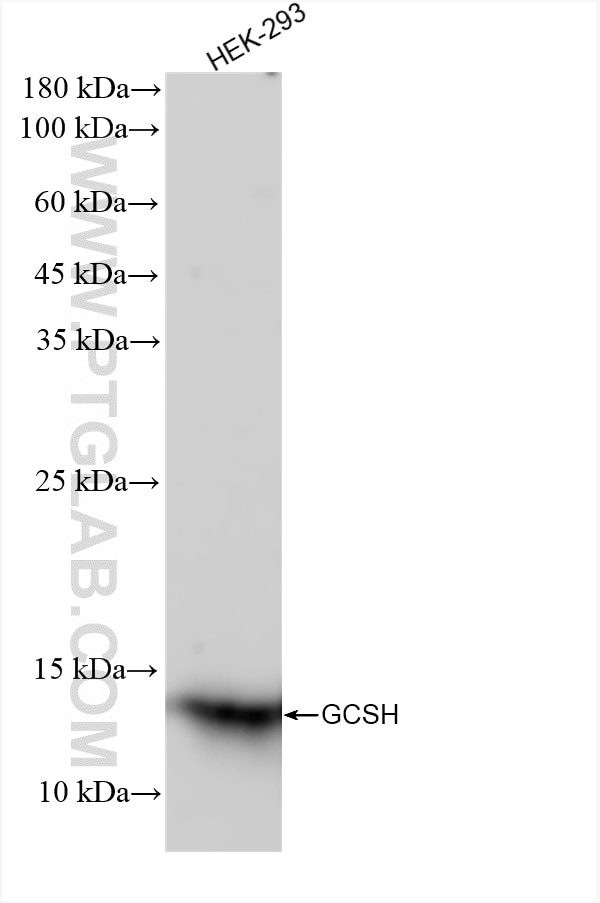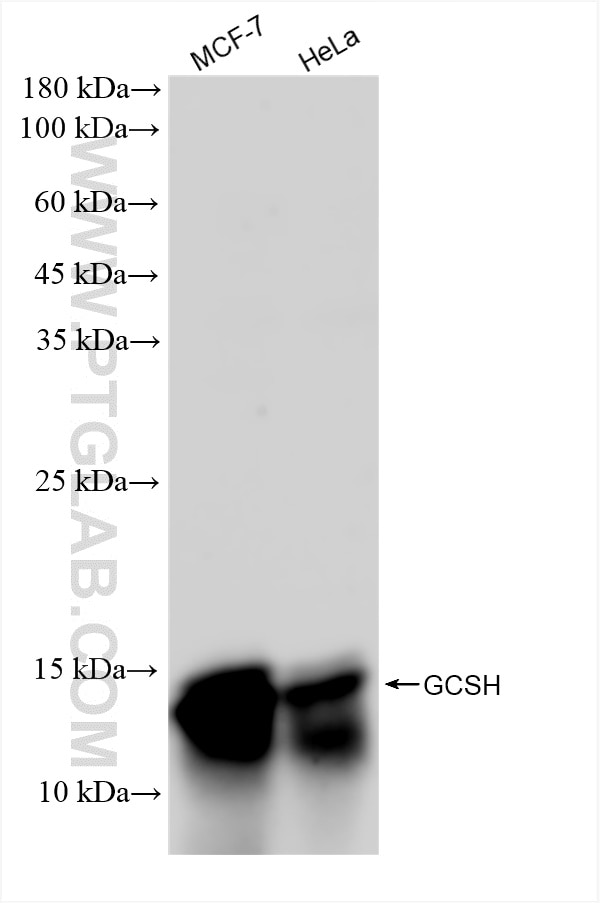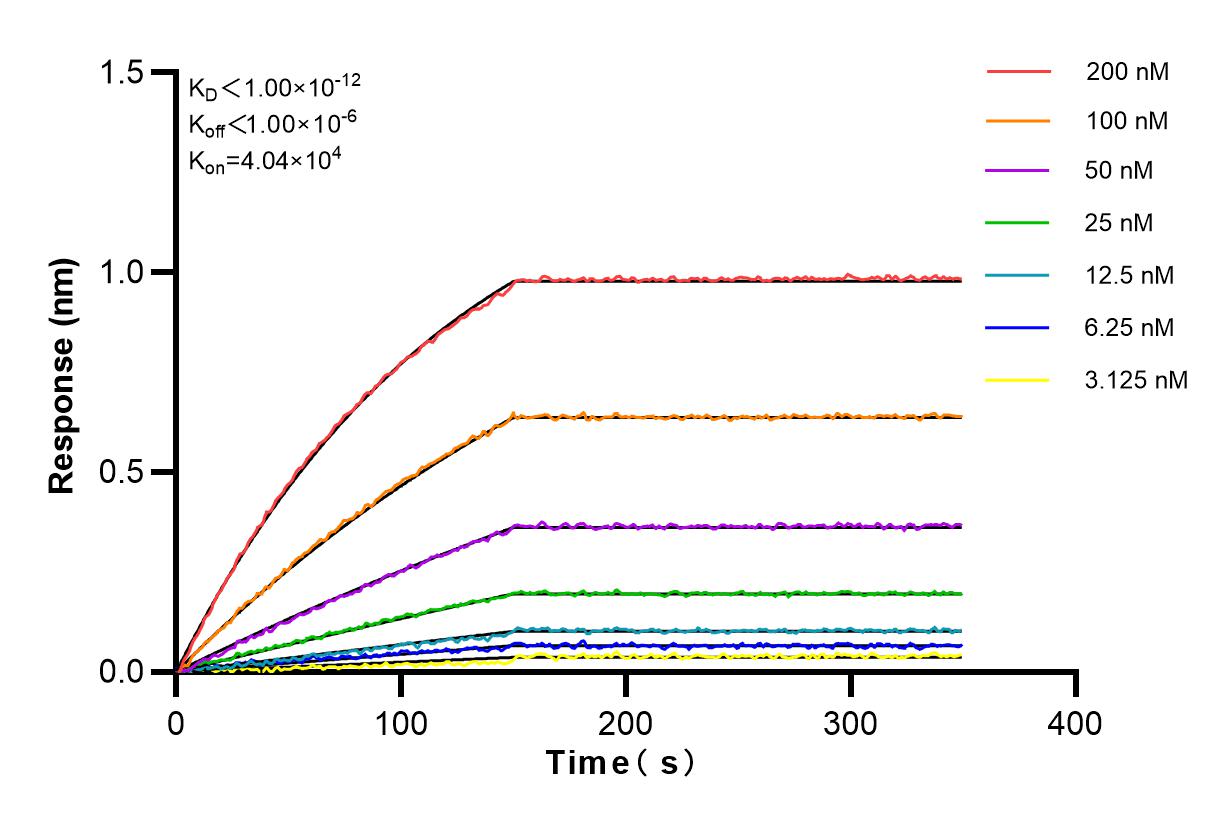Validation Data Gallery
Tested Applications
| Positive WB detected in | HEK-293 cells, MCF-7 cells, HeLa cells |
Recommended dilution
| Application | Dilution |
|---|---|
| Western Blot (WB) | WB : 1:5000-1:50000 |
| It is recommended that this reagent should be titrated in each testing system to obtain optimal results. | |
| Sample-dependent, Check data in validation data gallery. | |
Product Information
83012-5-RR targets GCSH in WB, ELISA applications and shows reactivity with Human samples.
| Tested Reactivity | Human |
| Host / Isotype | Rabbit / IgG |
| Class | Recombinant |
| Type | Antibody |
| Immunogen | GCSH fusion protein Ag10174 相同性解析による交差性が予測される生物種 |
| Full Name | glycine cleavage system protein H (aminomethyl carrier) |
| Calculated molecular weight | 19 kDa |
| Observed molecular weight | ~15 kDa |
| GenBank accession number | BC000790 |
| Gene Symbol | GCSH |
| Gene ID (NCBI) | 2653 |
| RRID | AB_3670756 |
| Conjugate | Unconjugated |
| Form | Liquid |
| Purification Method | Protein A purfication |
| UNIPROT ID | P23434 |
| Storage Buffer | PBS with 0.02% sodium azide and 50% glycerol{{ptg:BufferTemp}}7.3 |
| Storage Conditions | Store at -20°C. Stable for one year after shipment. Aliquoting is unnecessary for -20oC storage. |
Background Information
GCSH(Glycine cleavage system H protein, mitochondrial) is a component of the glycine cleavage system loosely associated with the mitochondrial inner membrane and has lipoic acid as a prosthetic group. The full-length GCSH cDNA encodes a precursor protein of 173 amino acids and a mature protein of 125 amino acids. The lipoylation of H-protein occurs in mitochondria which probably contain an activated form of lipoic acid as well as other components required for the transfer of lipoic acid to the protein(PMID:2211640). Defects in GCSH are a cause of non-ketotic hyperglycinemia (NKH).
Protocols
| Product Specific Protocols | |
|---|---|
| WB protocol for GCSH antibody 83012-5-RR | Download protocol |
| Standard Protocols | |
|---|---|
| Click here to view our Standard Protocols |


